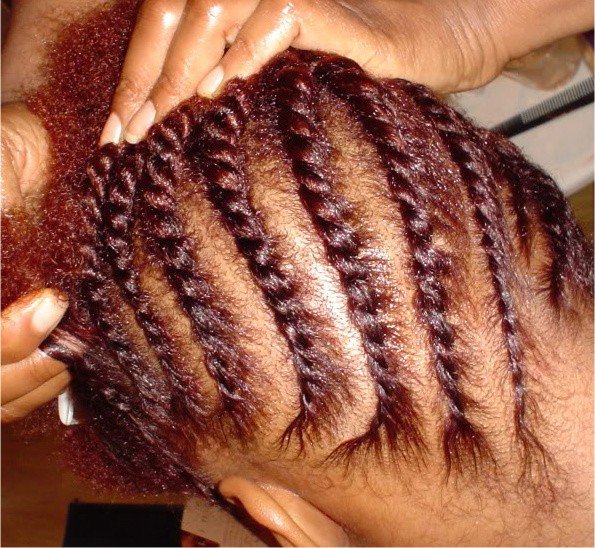
One of the most common misdiagnosed conditions is dandruff.
For example, often we overlook symptoms that are more accurately associated with sebhorrheic dermatitis, writing it off as dandruff and deciding to move forward with a self-diagnosis.
Do you remember the old Head and Shoulders commercials from yesteryear?
The premise of those commercials was very simple. Use Head and Shoulders shampoo and you would wash away the often-embarrassing dandruff flakes that many people have to deal with.
I am not bashing Head and Shoulders, because I imagine that they have good products.
However, like many commercials, they play on the emotional appeal of the individual watching the commercial, which is actually good marketing.
The product appears to solve a problem that you have, so you give it a chance to live up to the claims.
What is dandruff?
Dandruff is not contagious and most of the time it is not a serious condition.
It is a very common scalp condition that causes the skin on your scalp to itch and flake away. In simple terms, dandruff is a scalp reaction that causes the natural cycle of skin replenishment to occur more quickly on your scalp.
Obviously, it can be embarrassing to have noticeable dandruff flakes present in your hair and on your shoulders, but typically, dandruff can be controlled.
If you only have a mild case of dandruff, you will probably be just fine by shampooing your hair regularly with a gentle shampoo.
However, if you have a more severe case of dandruff, medicated shampoos or physician assistance may be necessary.
Identifying dandruff
Dandruff is a condition that is usually simple to diagnose. If there are flakes of dead skin present in your hair and on your shoulders coupled with an itchy scalp, there is a good chance that you have dandruff.
The condition can be impacted by the climate that you live in. Fall and winter months are usually the most difficult times of the year for people with dandruff due to indoor heating contributing to dry skin and scalp. Typically, statistics show that the condition will improve during the summer months.
When is dandruff extreme?
If you only have a mild case of dandruff, it is typically not necessary to visit the doctor. My advice is to find a gentle shampoo and begin shampooing your hair regularly (weekly is a good start) and adjust as needed based on the results.
However, if shampooing your hair regularly doesn¡¦t seem to help much or if your scalp condition becomes more severe (red, tender or swollen), then it¡¦s time to visit your medical doctor or dermatologist.
There are skin conditions like seborrheic dermatitis that resemble dandruff to the layman and should only be diagnosed by a medical doctor or dermatologist. This type of diagnosis generally requires a visual examination of your hair and scalp by a trained medical professional.
Potential causes of dandruff-like symptoms
There are several potential causes of dandruff. Below are the most common causes:
Æ’»Experiencing sensitivity to specific ingredients within hair care products that contact the scalp (contact dermatitis) is a common cause of dandruff-like symptoms. This is a great example of why writing down what you put in your hair is so important. Using certain ingredients too frequently may also irritate your scalp. For example, paraphenylene diamine is an ingredient that has been known to appear in some hair care products. It is a common culprit of itchy, scaling scalp. It¡¦s important that you determine which hair care ingredients are causing problems for your scalp.
Æ’»
Infrequent or inadequate shampooing can lead to
a dirty scalp due to the potential product build-up and the accumulation of oils and skin cells on your scalp. Be sure to shampoo your hair regularly to prevent this potential cause of dandruff.
Æ’»Dry skin has always been a potential cause of dandruff. The problem is exacerbated in the winter months when the air outside is cold and our houses are often heated. This scenario is ripe for itchy, flaking dandruff. It is important to note that the flakes that you will see from dry skin are usually smaller and less oily than the flakes from other causes of dandruff. If you have dry skin on other parts of your body like your arms, legs, and back there is a greater probability that you will encounter this form of dandruff.
Æ’»
Seborrheic dermatitis, an inflammatory skin condition, can affect oily areas of the body including your eyebrows, ears, nose, groin, armpits and breastbone. Additionally, this condition has been known to produce flaky, dandruff-like scales on other oily areas of your body including the scalp. Seborrheic dermatitis is commonly misdiagnosed as dandruff.
Æ’»
If you have eczema on any part of your body, then there is a chance that you also have it on your scalp. This can lead to the development of dandruff.
Æ’»
Psoriasis, which more commonly affects the knees and elbows, is a skin disorder where dead skin cells accumulate and form chunky, silvery scales. This disorder can also affect your scalp, making it difficult to differentiate from seborrheic dermatitis without the assistance of a medical professional.
Æ’»
Malassezia (formerly known as Pityrosporum) is often found on the skin of many humans and other mammals. This yeast-like fungus typically doesn¡¦t cause problems for most healthy adults. However, there are times when the fungus grows out of control and feeds on the natural oils produced by your hair follicles. This feeding process can irritate the scalp and encourage more skin to grow. When these extra skin cells die and flake away, they are generally clumped together with natural oils from your hair and scalp appearing to be dandruff to the layman. Again, this disorder can easily be misdiagnosed as seborrheic dermatitis and obtaining professional medical advice is the recommended course of action.
Are you at high risk for dandruff?
Several factors can make you more susceptible to suffering from dandruff including:
Æ’»Males are higher risk than females due to larger oil-producing glands on their scalps
Æ’»Individuals with oily hair and scalps
Æ’»Individuals who choose to eat a poor diet
Æ’»Young adults due to pubertal development through middle age
Æ’»Certain medical illnesses and conditions, which are outside of the scope of this article, also put you at high risk for dandruff. We choose not to provide medical advice and encourage you to consult with your medical doctor or dermatologist.
Typically, dandruff can be controlled with a little patience and persistence. Begin by washing your hair regularly with a gentle shampoo. Keep in mind that shampoos can contain very different ingredients and you may have to try a few to find the one that works best for you. Discontinue using any hair products that cause your scalp to itch, sting, burn or turn red. Furthermore, if you think you¡¦re having an allergic reaction to a hair product like a rash or hives then consult with your medical doctor or dermatologist at your earliest convenience.
We¡¦ve seen the following shampoos work well for many other people. If you¡¦re looking for a shampoo to combat dandruff check-out one out this shampoo.
Dandra Solv shampoo.




